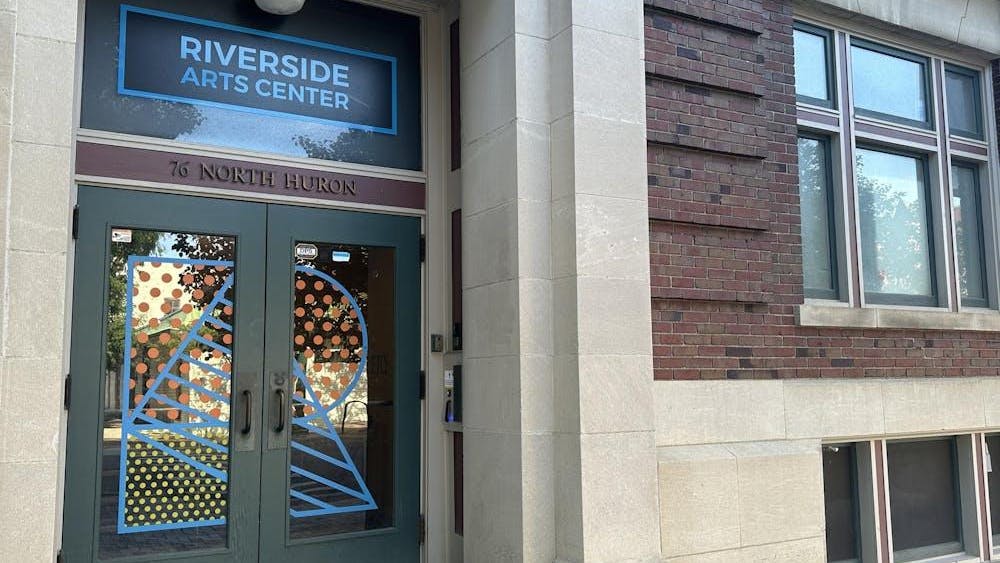Eastern Michigan University students were informed about the pros and cons of Proposal 1, the emergency manager law, at a Student Government event titled “What’s on the Ballot” Oct. 9 in the Halle Library Auditorium.
The event discussed the new law, which would allow an emergency manager to intervene in school districts, including having the power to cancel union contracts, ignore minimum staffing levels and make academic decisions.
EMU Student Government represented the vote yes campaign by showing arguments for this view in a powerpoint presentation.
The vote yes campaign argued the state is liable for local government debt and the alternative option is bankruptcy.
However, Austin Garrett, who spoke on behalf of the vote no campaign, gave two major reasons for why he felt people should vote no on the proposal.
Garrett said in the discussion people should vote no because the law itself doesn’t work and it tramples upon the fundamental right to vote.
Garrett used Detroit Public schools as an example of why the emergency manager law doesn’t work.
“The emergency financial manager of Detroit almost doubled the deficit by the time he finished,” Garrett said. “He left Detroit in worse shape than it was before.”
He also included Pontiac as another example.
“The emergency manager for Pontiac sold the Silverdome for less than what it was worth,” Garrett said. “There are houses in Birmingham that sell for more than what the Silverdome was sold for.”
Garrett also presented other concerns about the proposal. He said the law gives the emergency manager the power to throw out elected officials. For this reason, he feels that a major issue with this proposal is voting.
“There is no accountability to the voters if you put one person in power,” Garrett said.
Another major concern Garrett presented to the audience is whether cities will benefit from the proposal.
“Who has emergency managers helped?” Garret asked.
He provided Detroit as an example again of why he questions whether cities will benefit.
“Detroit gained a deficit of over $20 million in six months time after signing the consent agreement back in April,” he said.
The discussion also questioned whether the proposal will benefit individuals.
Garrett said the salary of the emergency manager is whatever the state and city come to agreement on using a corporate model. This means that there is no salary cap for the emergency manager.
“How are you helping my financial woes if you are adding to my expenses?” Garrett asked.
However, his biggest concern with the law is what it doesn’t address.
“As much as the emergency manager can do, there is nothing in the law that handles revenue,” Garrett said in the discussion. “The problem is that revenue is how cities are financially cared for.”
After addressing the issues, Garrett provided his list of solutions for the emergency manager law. He said that one of the solutions could be for the state to offer assistance to cities by loaning them money.
At the end of the presentation, Garrett addressed the question of why Proposal 1 isn’t getting as much attention as the other state proposals.
Garrett said, “Proposal 1 does not change the Constitution, and it would not make sense to spend money on something that will go away.”
He also addressed the question of who chooses the emergency manager. Garrett said that the state calls a review team and makes a recommendation to the governor, and that the governor makes the final decision.
The discussion for Proposal 1 did not draw in as many students as other proposals, but one student was glad he came to the event.
“It ended up being a lot more interesting than I thought it would be,” EMU junior Gregory Thomas said.
Thomas feels that an emergency manager could be beneficial in certain situations.
“I feel that Detroit needs an emergency manager because the city does not seem to be on the right track, but I do not think that all cities should be required to have one,” Thomas said.
However, some students feel that an emergency manager would do more harm than good in any scenario.
“I don’t think the law should be passed,” senior Rondreka Martin said. “I don’t feel that past emergency managers have helped the state of Michigan because they have increased the debt.”
Joslyn Harris, a freshman at EMU, agreed.
“I feel that an emergency manager would not be good for cities,” she said.







